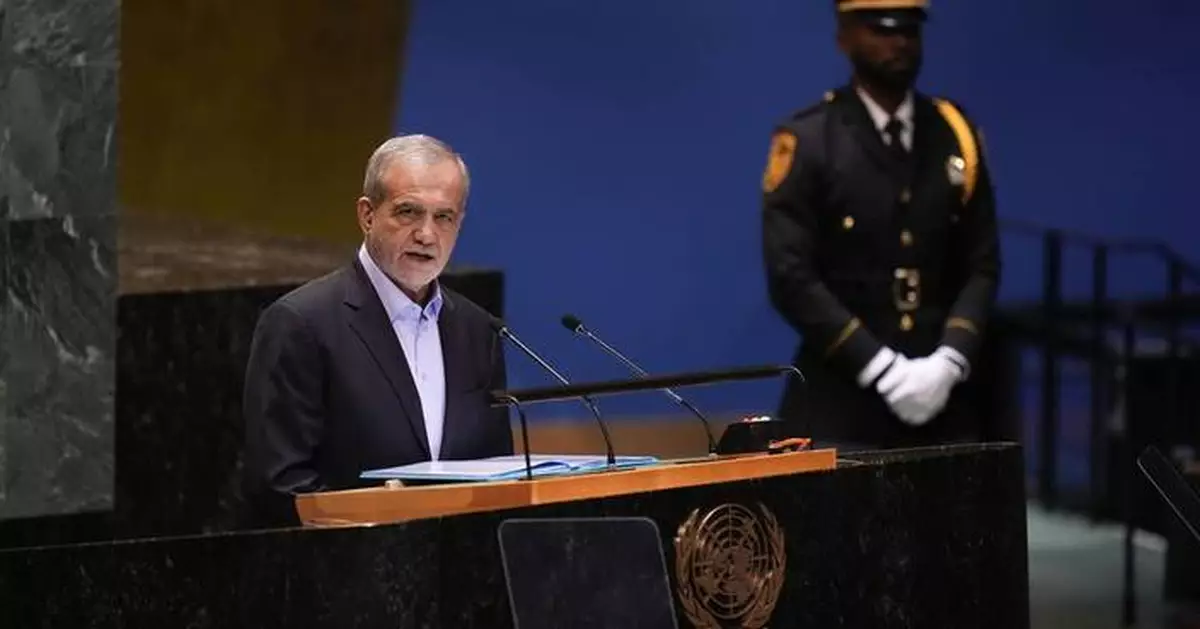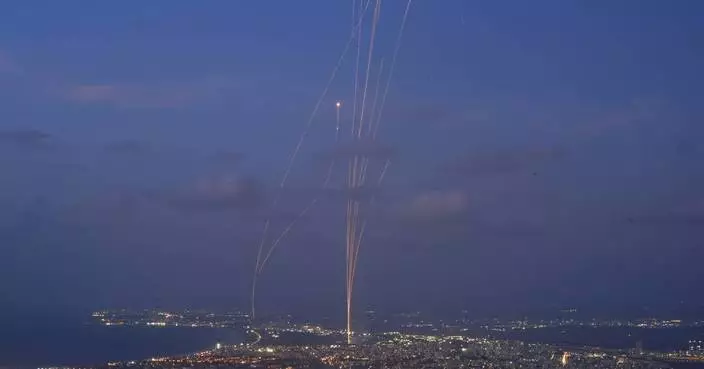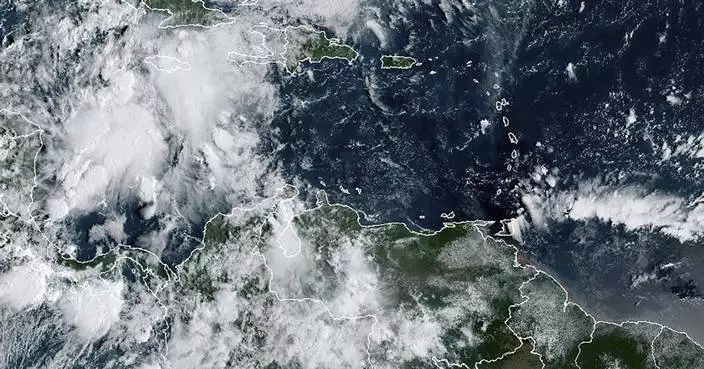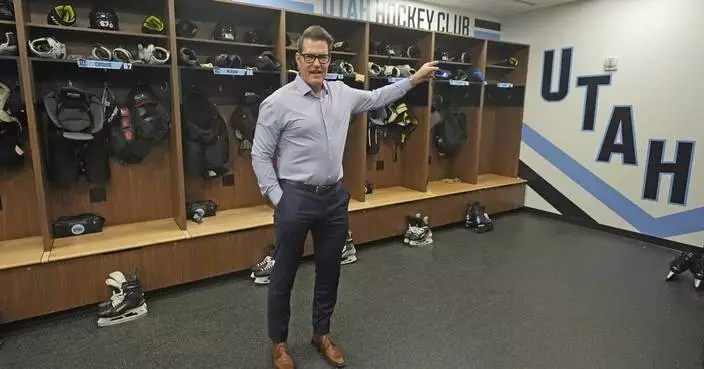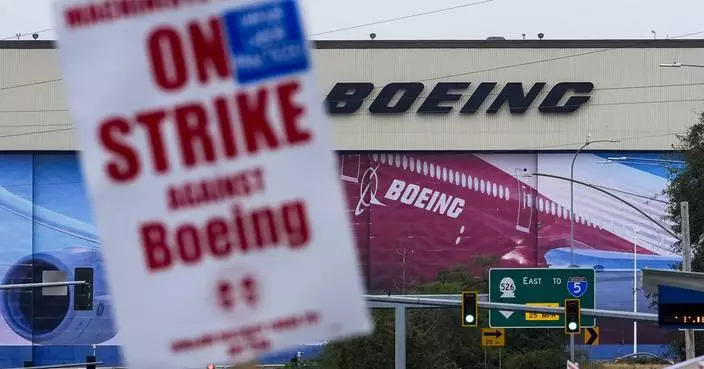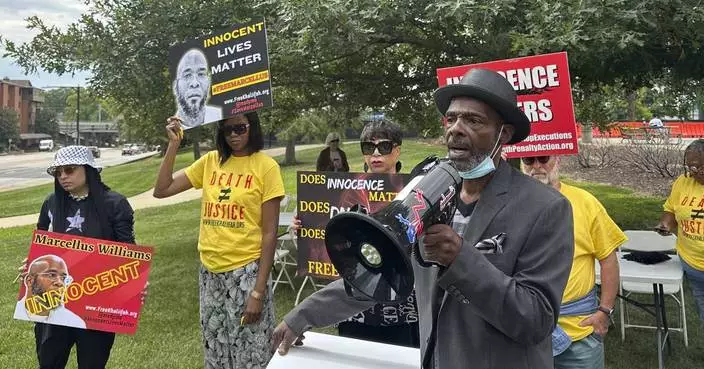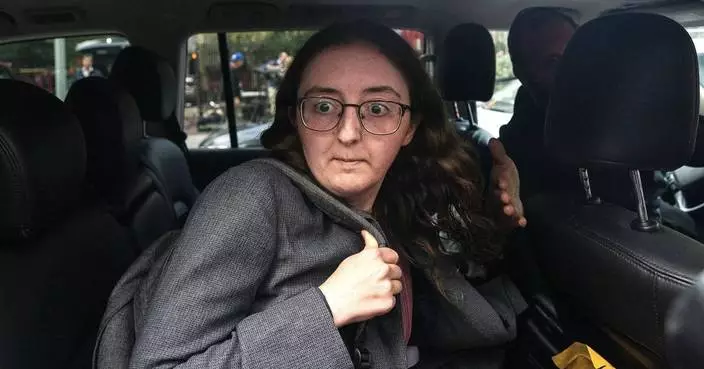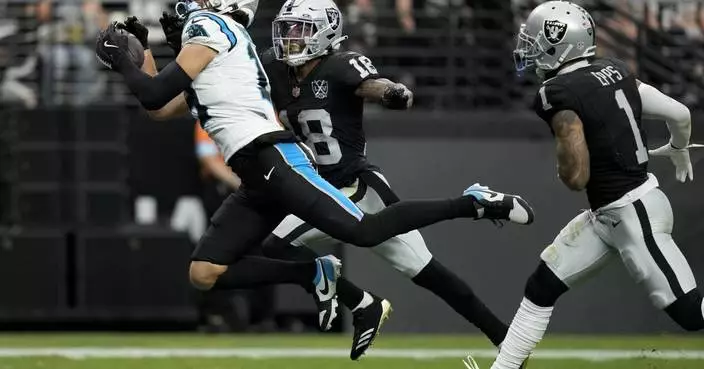UNITED NATIONS (AP) — Iran’s new president signaled to world leaders Tuesday that he wants to open a “constructive” chapter in his country’s international relations — but he made clear that everyone else, including the United States, needs to do their part.
In his first speech at the U.N. General Assembly’s annual gathering of world leaders, Masoud Pezeshkian struck a somewhat more measured tone than his predecessors often have in recent years.
“I aim to lay a strong foundation for my country’s entry into a new era, positioning it to play an effective and constructive role in the evolving global order,” said Pezeshkian, a heart surgeon who ran as a reformer. He took office in July.
Iran’s supreme leader, Ayatollah Ali Khamenei, opened the door last month to renewed negotiations with the United States over his country’s rapidly advancing nuclear program, telling Iran’s civilian government there was “no harm” in engaging with its “enemy.” The United States, under former President Donald Trump, withdrew in 2018 from Iran’s deal with several Western nations to curtail its nuclear program in exchange for getting sanctions lifted.
It remains unclear just how much room Pezeshkian will have to maneuver, particularly as tensions remain high in the wider Middle East over the Israel-Hamas war and as the U.S. prepares for a presidential election in November.
Pezeshkian, like Iranian presidents before him, had sharp words Tuesday for Israel. He accused the nation of “atrocities,” “colonialism,” “crimes against humanity” and “desperate barbarism” as it fights Hamas in Gaza and exchanges fire with Hezbollah in Lebanon. Iran backs both militant groups.
Israel’s heavy bombardment of Lebanon in recent days “cannot go unanswered,” he said. He added that consequences would be borne by governments he described as thwarting efforts to end the “catastrophe” in the Middle East while calling themselves champions of human rights, an apparent reference to the United States and allied Western powers.
Washington has been attempting, with Egypt and Qatar, to get Israel and Hamas to agree to a cease-fire deal. But it has been elusive, and now the developments in Lebanon stand to complicate the efforts further.
Directly addressing the American people, Pezeshkian listed a number of Iranian grievances — from sanctions to the 2020 killing of Iranian Gen. Qassem Soleimani in a Trump-era U.S. drone strike — and then urged “all states pursuing a counterproductive strategy towards Iran” to “learn from history.”
“We have the opportunity to transcend these limitations and enter into a new era. This era will commence with the acknowledgement of Iran’s security concerns and cooperation on mutual challenges,” he said, appealing anew for sanctions relief.
“I hope that this message from Iran is carefully heard today,” the new president concluded.
There was no immediate response from the U.S. or Israel.
Associated Press writer Edith M. Lederer contributed. See more of AP’s coverage of the U.N. General Assembly at https://apnews.com/hub/united-nations
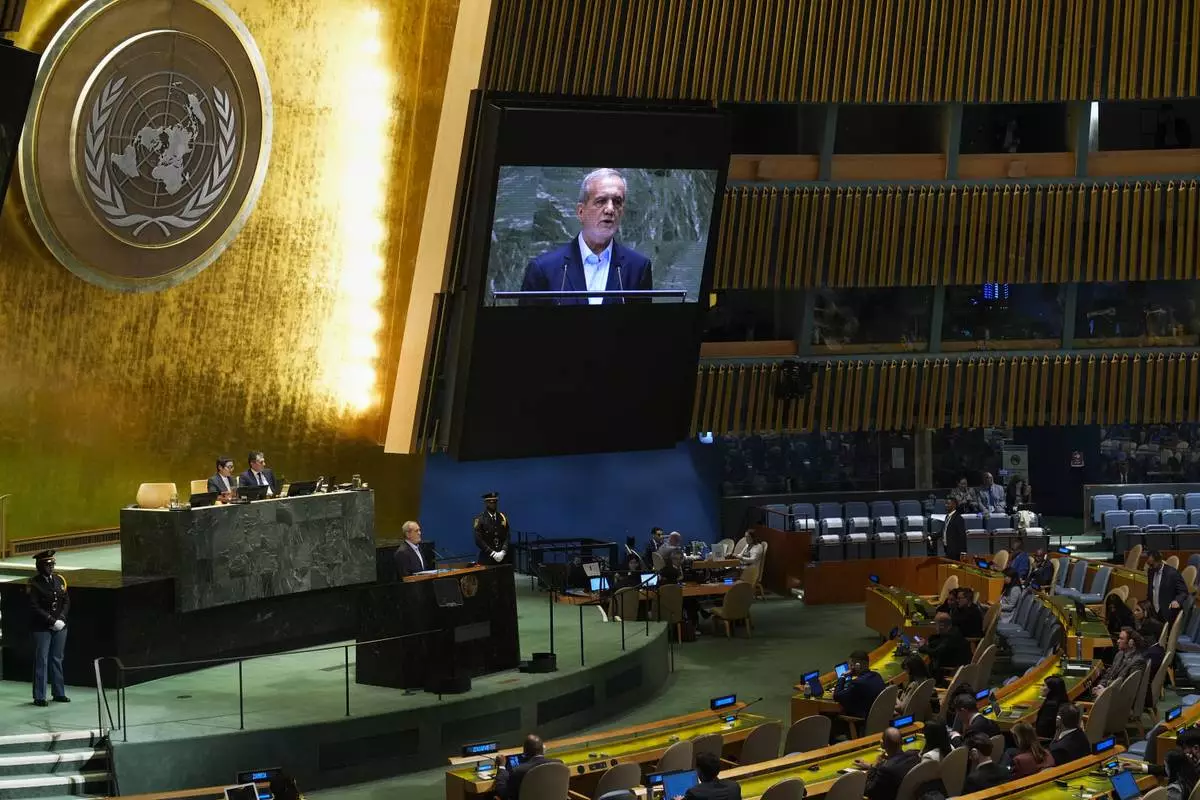
Masoud Pezeshkian, President of Iran, addresses the 79th session of the United Nations General Assembly at United Nations headquarters, Tuesday, Sept. 24, 2024. (AP Photo/Seth Wenig)
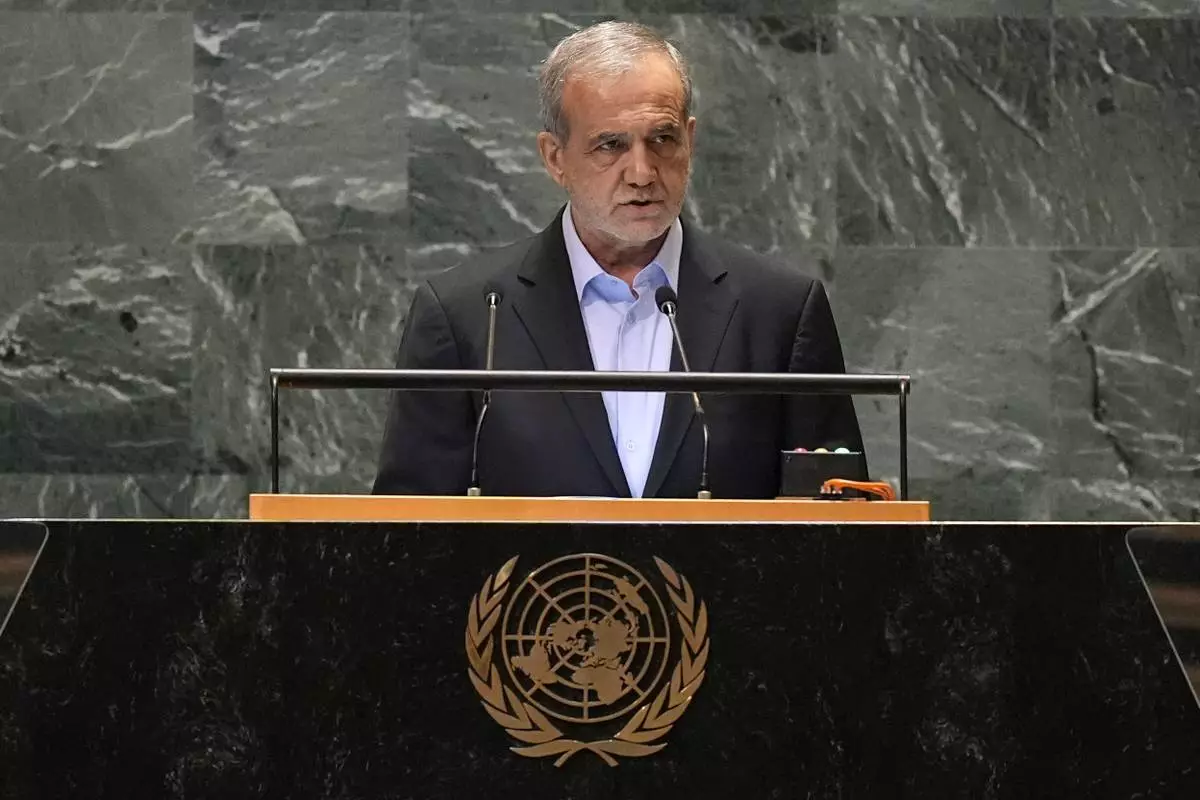
President of Iran Masoud Pezeshkian addresses the 79th session of the United Nations General Assembly, Tuesday, Sept. 24, 2024. (AP Photo/Pamela Smith)
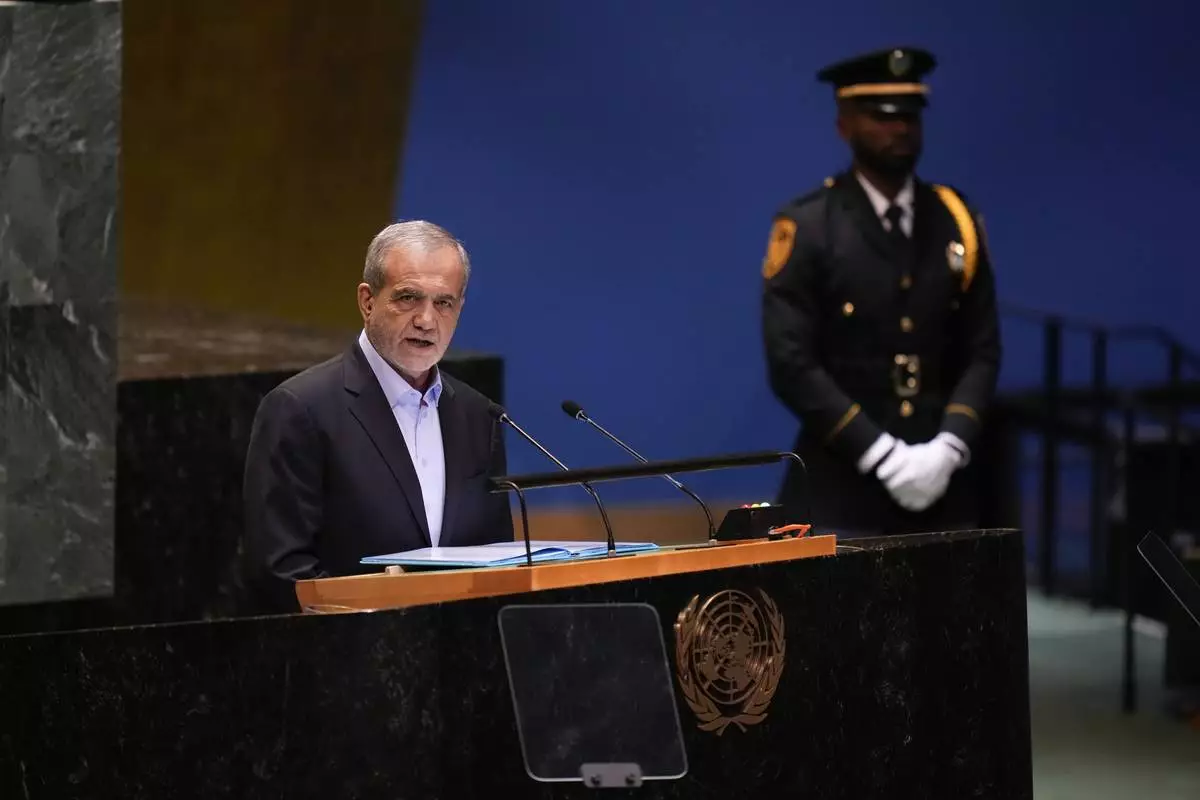
President of Iran Masoud Pezeshkian addresses the 79th session of the United Nations General Assembly at United Nations headquarters, Tuesday, Sept. 24, 2024. (AP Photo/Seth Wenig)
OKLAHOMA CITY (AP) — Death row inmates in five states are scheduled to be put to death in the span of one week, an unusually high number of executions that defies a yearslong trend of decline in both the use and support of the death penalty in the U.S.
The first execution was carried out on Friday in South Carolina. Another death row inmate in Missouri was put to death Tuesday evening. If the three remaining scheduled executions in Alabama, Oklahoma and Texas are carried out this week, it will mark the first time in more than 20 years — since July 2003 — that five were held in seven days. That's according to the nonprofit Death Penalty Information Center, which takes no position on capital punishment but has criticized the way states carry out executions.
If the remaining executions are completed, the United States will have reached 1,600 executions since the death penalty was reinstated by the U.S. Supreme Court in 1976, said Robin Maher, the center’s executive director.
“Two on a single day is unusual, and four on two days in the same week is also very unusual,” Maher said.
Here are some things to know about executions set this week across the country.
Experts say five executions being scheduled within one week is simply an anomaly that resulted from courts or elected officials in individual states setting dates around the same time after inmates exhausted their appeals.
“I'm not aware of any reason other than coincidence,” said Eric Berger, a law professor at the University of Nebraska with expertise in the death penalty and lethal injection.
Berger said some factors can result in a backlog of executions, such as a state's inability to obtain the lethal drugs necessary to carry them out, which happened in South Carolina, or a moratorium that resulted from botched executions, like what happened in Oklahoma.
The first of the five executions took place on Friday when South Carolina put inmate Freddie Owens to death for the 1997 killing of a convenience store clerk during a robbery. It was South Carolina's first execution in 13 years, an unintended delay caused by the inability of state prison officials to obtain the drugs needed for lethal injections. To carry out executions, the state switched from a three-drug method to a new protocol of using a single sedative, pentobarbital.
In Missouri on Tuesday evening, Marcellus Williams was put to death by lethal injection for the 1998 stabbing death of a woman in the St. Louis suburb of University City. Williams’ attorneys argued on Monday that the state Supreme Court should halt his execution over alleged procedural errors in jury selection and the prosecution’s alleged mishandling of the murder weapon. But the state’s high court rejected those arguments, and Gov. Mike Parson denied Williams’ clemency request, paving the way for his execution to proceed.
Also on Tuesday, Texas death row inmate, Travis Mullis, is scheduled to be executed. Mullis, a man with a long history of mental illness who has repeatedly sought to waive his right to appeal his death sentence, was sentenced to death for killing his 3-month-old son in January 2008. Mullis’ attorneys did not plan to file any appeals to try and stay his lethal injection.
Alabama on Thursday is preparing to carry out the nation’s second execution ever using nitrogen gas after becoming the first state to use the new procedure in January. Alan Miller is set to die by the process in which a mask is placed over the inmate’s head that forces the inmate to inhale pure nitrogen. Miller, who was given a reprieve in 2022 after his execution was called off when officials were unable to connect an intravenous line, was sentenced to die after being convicted of killing three men during back-to-back workplace shootings in 1999.
In Oklahoma, Emmanuel Littlejohn is set to receive a lethal injection on Thursday after being sentenced to die for his role in the 1992 shooting death of a convenience store owner during a robbery. Littlejohn has admitted to his role in the robbery, but claims he did not fire the fatal shot. The state's Pardon and Parole Board voted 3-2 last month to recommend Gov. Kevin Stitt spare Littlejohn's life, but the governor has yet to make a clemency decision.
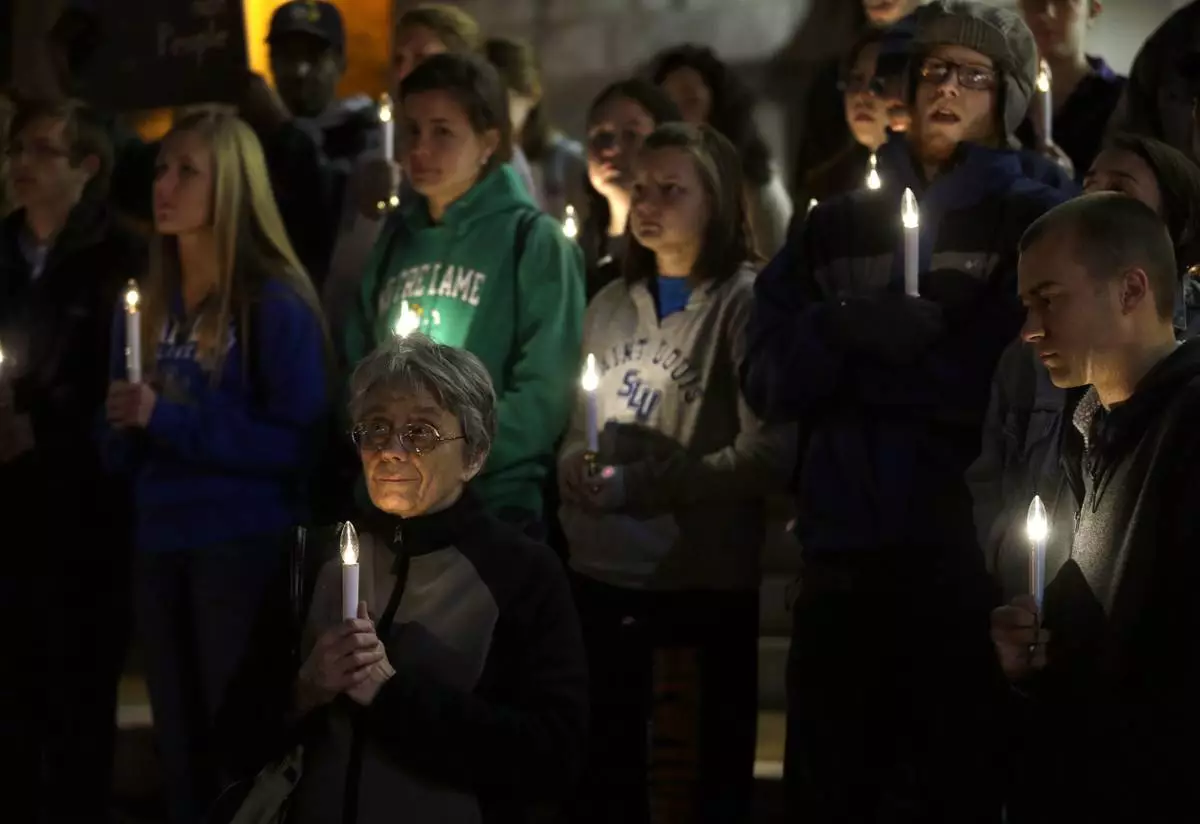
FILE - In this Nov. 19, 2013 file photo, a small group of death penalty opponents stand outside St. Francis Xavier Church during a vigil in protest of the scheduled execution of Missouri death row inmate Joseph Paul Franklin in St. Louis. (AP Photo/Jeff Roberson, File)
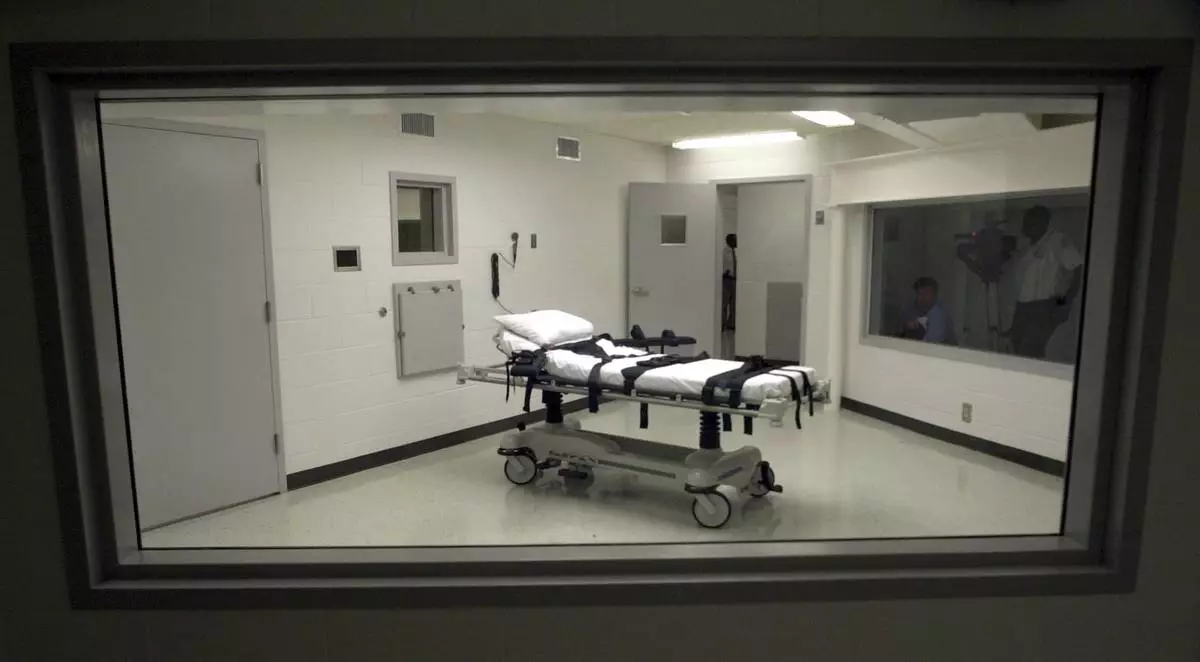
FILE- Alabama's lethal injection chamber is shown Oct. 7, 2002, at Holman Correctional Facility in Atmore, Ala. (AP Photo/Dave Martin, File)





